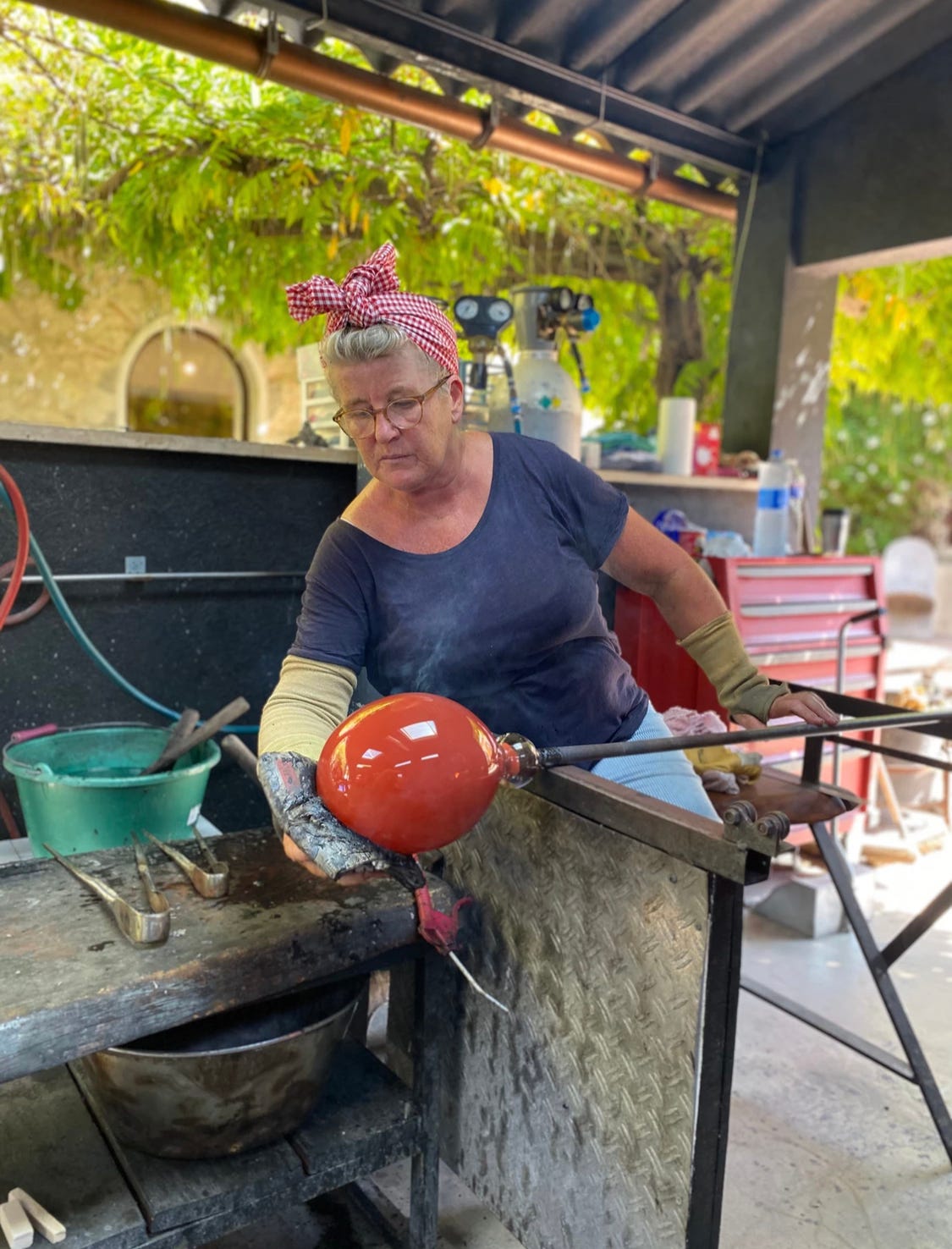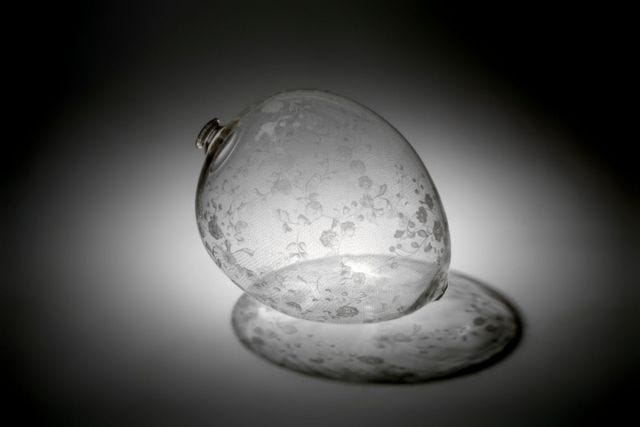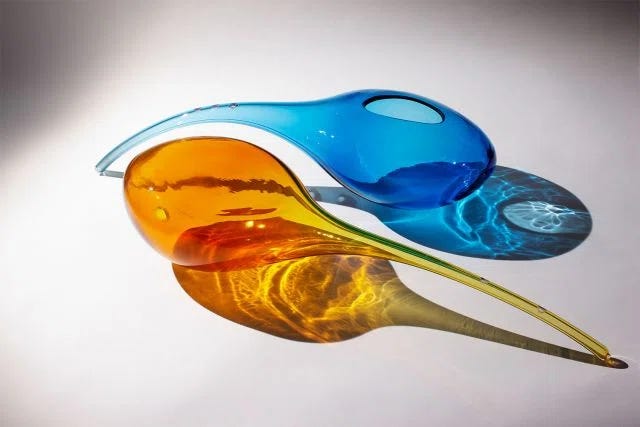Ómós Digest #39: We all need our Ma.
The Western world would do well to understand the meaning of Ma.
This newsletter is for ALL subscribers! Everyone’s support is so appreciated and I hope you are enjoying the content. On that note, we’re so excited to find out that we’ve been included in the Substack Top 50 List for Food and Drink! That’s thanks to all you guys! We’re a year old this month and are pretty flattered by the response!
Your support allows us to build on this and dive deeper into our journey. If you fancy upgrading to a paid subscription (and we’d love you to consider it), you’ll enjoy unlimited access to our newsletters, including the Ómós foraging guide, seaweed glossary and manifesto for sustainability. Plus, for the price of a pint, we’ll give you early access to product releases.
We also want to remind you all that the Digest is free for all young, junior and aspiring chefs and front of house. Simply send an email to omos@omos.co. If you know of anyone in this category who might benefit from the Digest, encourage them to sign up. They really are the future!
Now, one final thank you, thank you, thank you to all (ok that's three). Your support means everything to us. Ok, let’s get into this!
She’s me ma
Ma says take out the washing… Ma had me run the messages yesterday… Ma’s bleedin deadly isn’t she?… Don’t let ma find out.
The Irish mother, typically abbreviated to mum, mam, mammy, occasionally yer aul’ wan (your old one) or indeed ‘Ma’ is regarded as the family's backbone. A wise, witty, inspiring and charismatic figure you’d do well to listen to (and even better not to get on the wrong side of). This very much applies to my own mother, Róisín de Buitléar, who my family and I regularly refer to as ‘Mná na h’Éireann’ or Woman of Ireland. I feel fortunate to have the mother that I do. She’s a total inspiration to me. Like many of us, my mother has helped me through the darkest of hours, providing me with the advice I didn’t know I needed. She also has an indisputable influence on my career.
My mother certainly possesses some, if not all of the typical ‘Irish Mammy’ characteristics but also her actions and inclinations warrant the aforementioned heroic title. Her incredibly contemplative nature, vision and drive never ceases to amaze me. She says, “I am passionate about Ireland, its culture, traditions, language and natural beauty. I evolve work that is contemplative, meditative and which reinforces the simple delight of gracious lines.” An artist and professional glassblower by trade, her ability to intertwine her craft with the stories of our culture is awe-inspiring which makes her, in my eyes, one of the world's most incredible artists, glassblowers and mammies in all the land.
“I have been fascinated by glass as much for its beauty as the challenge of working with it. I am continually inspired by the endless creative possibilities that glass offers.” - Roísín de Buitléar
My Ma has often told me about the importance of attributing yourself the space and time to breathe. That a break is what we crave and need in our accelerated lives. The space in which thoughts are not consumed by the day-to-day rigmarole of our overstimulated lives. She’s been telling me this all my life, and as I approach my 30th year, I’ve identified that now may be a good time to stop and listen. Today, we’re taking a look at the Japanese concept of space and time, otherwise known as Ma. On that note, let's give our own Ma’s the rest they deserve, so they too can find some breathing space.
MA - The Japanese concept of space and time
The author Kiyoshi Matsumoto states that, “The Japanese concept of Ma is something that relates to all aspects of life. It has been described as a pause in time, an interval or emptiness in space.’’ Ma is the fundamental time and space from which life needs to grow. “It speaks of silence as opposed to sound, of lack as opposed to excess. It is the momentary pause in speech needed to convey meaningful words, the silence between the notes that make the music.” Ma can be perceived as space within space and the ability to allow for space both metaphorically and visually. My interpretation of this is to intentionally make room for sunlight in one's household; that not every space needs filling. After all, Ma combines door 門 and sun 日. Together these two characters depict a door through the crevice of which the sunlight peeps in 間.
The Japanese have at least four different words for ‘space’, most of them quite different from their English equivalent. These are: building spaces that deepen relationships (Wa), generating new knowledge (Ba), connecting to the work around us (Tokoro) and moments of quiet and integration (Ma). Finally ma-nuke meaning ‘fool’, refers to someone who is missing Ma in their life. Perhaps, my mother’s persistence in finding space was well founded after all...
This mentality of space differs greatly from how we perceive time in the West. Work ethic and professions of notoriety are praised, and those who stray from the 9-5 are considered off-piste or in the process of 'finding their way’. When the pandemic put a halt to how we previously lived our lives, there were two manners in which people reacted to the government's actions. One was complete anger, aggrievement and panic, but the other was of acceptance, opportunity and relief. When everything they knew was taken away, including the stresses and pressures sustained through years of narrow sightedness and relentless pressure, this provided many with the overwhelming sensation of liberation. As the travel author Pico Iyer states, “Making a living and making a life sometimes point in opposite directions.” As a result of such unshackling of life's pressures, it's common knowledge that many deviated for good from their previous lives, and for those who were granted the gift to pause, holding onto their businesses, they came back even stronger. Time, the ability to stand back, contemplate and consistently diverge one's thoughts proved to be significant. This shows that it is all too easy to become swept up in those small, insignificant distractions that sway us off course, preventing us from thinking for ourselves or leading us to only think of ourselves. My mother believes that “thinking about space in a more Japanese way can open up new ways of organising life and focusing on the relationships that matter to each one of us.”
Over the past decade I have suffered terribly from what you might call ‘Ma-nuke’ or the inability to unwind. My justification for years has been that I absolutely love what I do, so much so that it has become a lifestyle rather than a career. When in constant pursuit of progression and ambition, I find my occupation has the ability to channel life within it, to the point that work follows me around wherever I go. Food being food inspires me every day. From grocery shopping to eating out - the good fortune to have food at our fingertips means it's an ever-present stimulation. My other passions: art, craft and culture act as reference tools for future restaurant concepts and design. Nature being the radicle or first idea for a dish. Even exercise acts as a catalyst for idea generation, which might be deemed productive but when the desire is to switch off and enjoy the scenery for what it is, it can feel antipodal. I have an overriding aspiration to find the space to read a novel that doesn’t focus on progression or learning. Yet, reading such a book, counterintuitively, feels unproductive. Alas, my previous understanding of productivity was one of poor judgement. I have since come to realise that if I give myself time off, I benefit from increased levels of productivity and happiness. I needed to reframe my thoughts positively.
I started having more conversations about my feelings of overstimulation with friends, acquaintances and even people outside of my circle. What's more, I quickly realised that I wasn’t alone. Collectively, we have become prisoners to this oversaturated world of social media, pressure and expectation. It wasn't until I read about Ma that I realised I was searching for that all along. How we spend our time and shape the space we live in directly impacts our progress. Several studies have found that adopting this attitude can reduce the risk of burnout and foster greater initiative, creativity and cooperation even after a six month period.
From an artistic perspective, Ma is very much present. It's the foundation to Ikebana, the Japanese artform of flower arranging. Considered more sensitive than Western flower arranging, Ikebana depends on Ma and subtlety is compromised if negative space is not respected. Similarly in architecture, Ma is embodied through intentionally empty space. In Ireland, we have a tendency to over-clutter and be possessive of our belongings, holding onto books we have never read and will never read. Matsumoto states that, “The emptiness of the interior enhances appreciation for the ephemeral experiences that pass through — the momentary gatherings of people and objects. This is a wonderful way to look at a home, free from material attachment, the walls are merely walls — it is about the life that occupies the space.”
Now, if I return my Western head to the fold and focus on ‘work’, introducing Ma into my world of hospitality seems like a sensible thing to do. From an architectural perspective, creating a space that allows one to breathe, think and appreciate the comings and goings of people might evoke a sense of clarity. A space where both guests and staff can find peace. When it is often the case that people laugh about tiny portions, intricately constructed dishes served on large dishware, perhaps this negativity is a subconscious nod to Ma, its emptiness and undeniable beauty, personified by the use of negative space. As I reflect on last week's newsletter addressing workplace culture (and thank you all for your wonderful emails and responses), thinking about how I was scorned for once walking through an empty dining room on my break, it's clear that the solitude, paired with the serenity of the room, should’ve been something that was encouraged. I've found something that has been sitting in front of my eyes all this time. Although my own Ma repeatedly encouraged me to find space, I needed to better understand the justification of Ma to allow it in.
I’m off for a run.
Cúán.







Thanks.
I needed that too.
space to think, listen to what's inside me, to breathe
and to come up with better ideas and solutions.
thanks to your wonderful ma too.